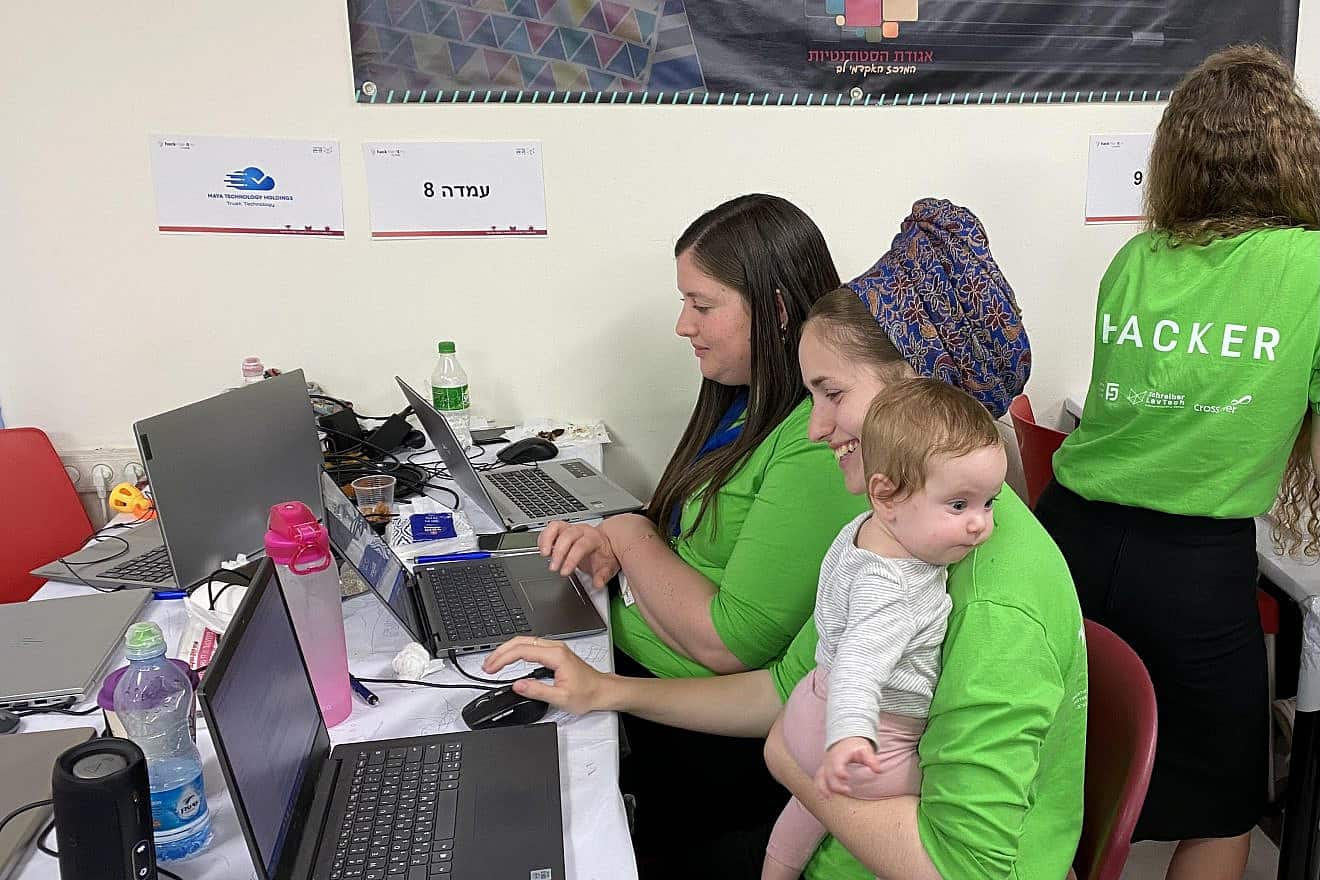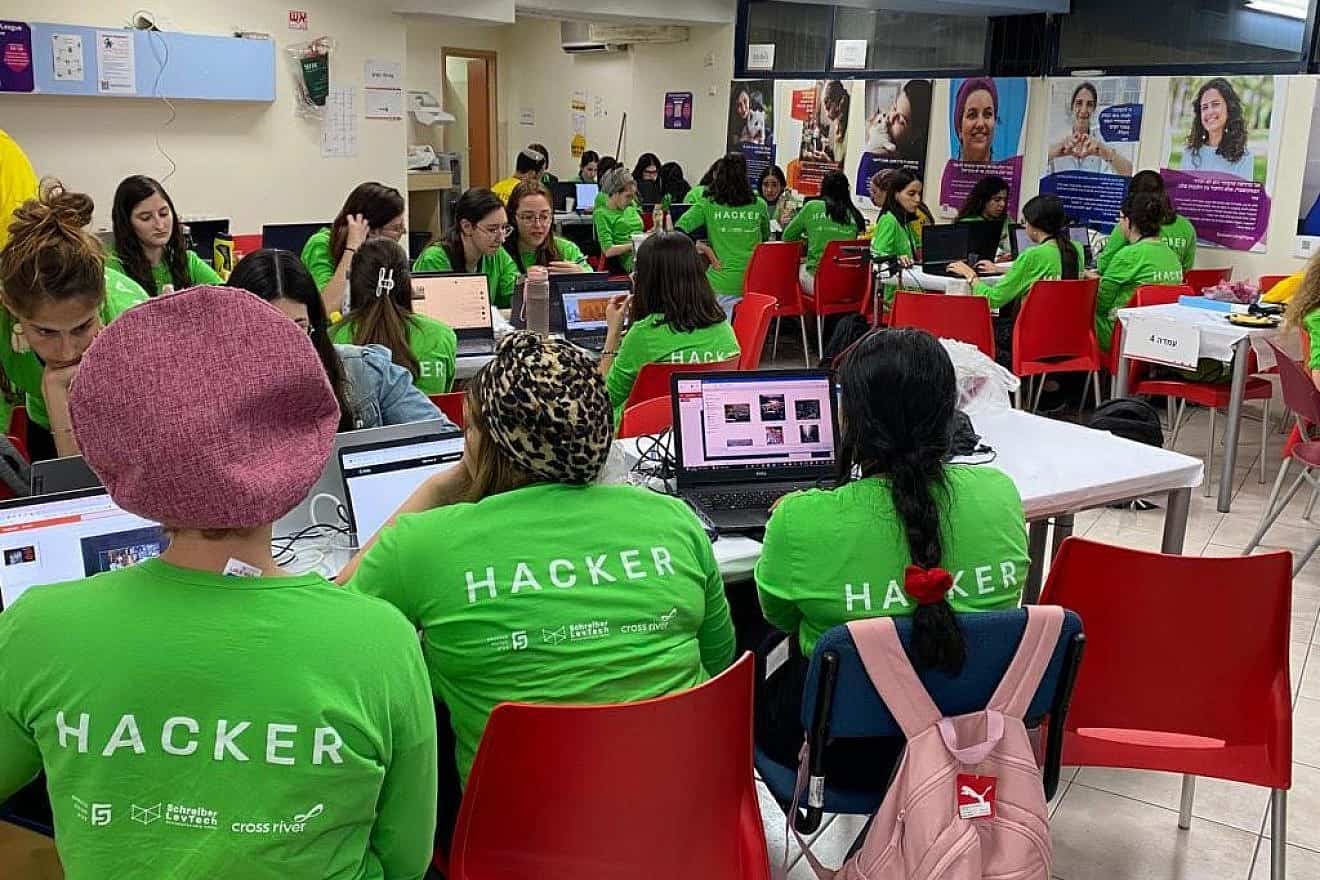Road safety, traffic flow and drone-detection solutions took the top prizes as a group of 150 students from the Jerusalem College of Technology (JCT) utilized the latest advances in artificial intelligence during the school’s sixth annual women’s hackathon, Hack.Her.It.
While AI was a component of previous JCT hackathons, this year marked the first time that students used both classic AI and generative AI, which can be used to create new content such as text, images and music.
During last week’s 46-hour event at the Schreiber LevTech Entrepreneurship Center in Jerusalem, students pursuing degrees in software engineering, computer science, business administration, industrial engineering and management tackled technological challenges presented by companies such as Rafael Advanced Systems, Intel, Elbit Systems, Amazon Web Services, Amdocs and Shomrei HaDerech (“Safe Lane”).
The top prize was awarded to the RoadEye team, which developed a more effective system to help prevent road accidents. The challenge was presented by Shomrei HaDerech/Safe Lane, a volunteer association that utilizes in-vehicle cameras to identify traffic violations. The students discovered how to obtain accurate images and information taken from the camera of a moving vehicle while the other vehicle committing the traffic violation is also moving, capturing images in low-light conditions. This team is the first to take on and succeed in that particular challenge, which SafeLane had also presented in past years.
Coming in second place was the RushHour team, which developed an intelligent system to alleviate traffic congestion in response to a challenge by Amazon Web Services. Using computer vision tools, the system utilizes existing cameras at intersections to determine the level of congestion and interacts with traffic lights to ease congestion.
The third-place team, Laser Hunter, in response to a challenge by Elbit Systems, developed technology to distinguish between friendly and enemy drones. They combined a laser system installed on the drone and a special algorithm developed by the students, which examines the received laser data and can classify the owner of the drone.
Many of the students participating were young mothers with babies, who wrote programming code while their infants either sat on their laps or played nearby in a specially organized nursery.
“From the moment we formed a team for the competition, it was clear to me that I would participate,” said Avital Horowitz, a second-year computer-science student at JCT, who competed while caring for her 6-month-old daughter. The baby was there while her team developed a system for connecting buyers and sellers of second-hand products using a specially created Telegram bot.
“Despite the challenging moments during the competition, with all the noise and fatigue, there was something calming about having her with me,” she continued. “She actually helped me stay focused. So I decided to keep her with me until the end, even though my mother could have taken care of her. I was happy to have her on stage with me when we received the award for the best presentation in the competition.”



























